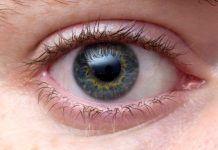Lack of pigments, which are mainly responsible for adding the color to various organs of your body can mainly lead to several vision and also skin problems.
One among those several problems is albinism.
Melanin plays the major role!
Albinism is considered as group of disorders, which mainly results from lack of production of melanin pigment in your body.
The color of your skin, hair and eyes mainly depends upon the production of melanin pigment in your body. This melanin pigment also plays a vital role in the development of certain optical nerves of your body.
Most common types of albinism mainly results in hypo-pigmentation, in which you can experience either absence of pigment in skin, eyes and also hair or you can have lighter pigmentation.
This can be due to the absorption of ultraviolet light. Most people with albinism usually become more sensitive to sun exposure and are more prone to develop skin cancers.
Albinism is a rare form of disorder found in very few individuals. There are almost 10 common types of this condition, in which one of the most severe forms include oculocutaneous albinism, which can mainly affect your skin, eyes and also hair.
People with very less severe form are usually born with white skin and hair, which can turn into black gradually as they grow.
Ocular albinism is the second most common form of albinism, in which you can notice the lack of color only in your eyes whereas the skin and hair can be normal.
Albinism mainly targets your ability of vision!
- You can experience either far or near sightedness and can have certain other defects in the curvature of lens of your eyes, which can lead to unfocused image appearance.
- Nystagmus, spontaneous movement of eyeball, is also one of the most common vision problems caused due to albinism [Blurred vision].
- Your eyes lack in coordination to fix and track the objects properly, which can lead your eyes to appear crossed sometimes. This kind of condition in eyes is known as strabismus.
- You can also experience photophobia, as your iris allows the stray light to enter in your eyes and your eyes can become more sensitive towards bright light.
So, be aware of albinism! Though it is a rare disorder, once if you experience it, it can show all possible adverse affects on your vision.













